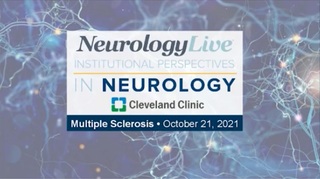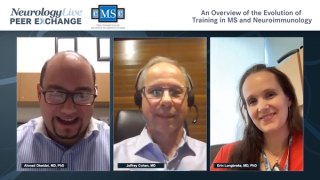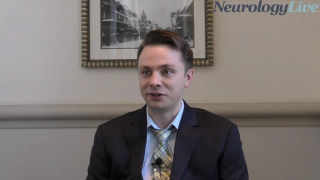
MS and Demyelinating Disorders
Latest News
Latest Videos

CME Content
More News

The senior director of patient management, care, and rehabilitation research at the National MS Society discussed challenges in care and rehabilitation in patients with progressive MS.
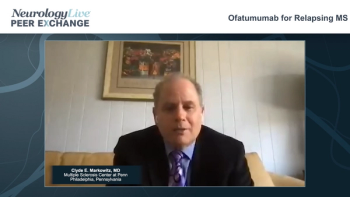
The rationale for treating patients with relapsing multiple sclerosis with ofatumumab based on data revealed by the ASCLEPIOS I and ASCLEPIOS II trials.
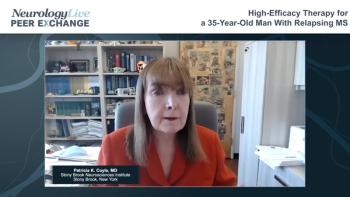
Implications for initiating treatment with a high-efficacy therapy for a 35-year-old man who presents with progressive numbness and weakness in his left arm and leg.

Robert Fox, MD, Vice-Chair for Research at the Cleveland Clinic Neurological Institute, discussed the findings of the phase 2 EMPhASIS trial of this investigational MS therapy.

Here's what is coming soon to NeurologyLive.

The Ralph and Luci Schey Chair and Director of the Schey Center for Cognitive Neuroimaging at Cleveland Clinic discussed populations that exhibit greater practice effects than others.

Neurology News Network for the week ending May 15, 2021.

Take 5 minutes to catch up on NeurologyLive's highlights from the week ending May 14, 2021.
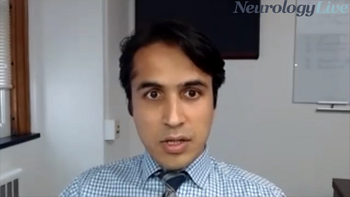
The neurologist from Cleveland Clinic stressed the potential for responsive neurostimulation in older populations with epilepsy and the need for expanded research.
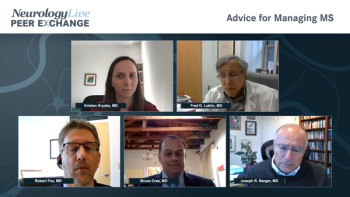
Joseph R. Berger, MD, and Fred D. Lublin, MD, offer advice to community physicians and neurologists in managing patients with multiple sclerosis.

All patients treated with ocrelizumab (Ocrevus; Genentech) were B-cell depleted and had lower SARS-CoV-2 antibody response than any other patients in the study.

The senior director of patient management, care, and rehabilitation research at the National MS Society discussed her recently published paper that called for progressive MS research.

The clinical research director at the UCSF Multiple Sclerosis Center shared some of the takeaways from his research for the clinical community of specialists treating patients with NMOSD.

The associate professor of Neurology at the Cleveland Clinic Lerner College of Medicine of Case Western Reserve University discussed the potential of a data-driven approach to classifying patients with MS.

Kathy Zackowski, PhD, OTR, senior director of patient management, care, and rehabilitation research at the National MS Society discussed her team’s call to action for research.

Improvements in DMTs and management standards appear to have lowered the risk of progression to EDSS scores of 4.0 and 6.0 for those with pediatric-onset disease.

The staff neurologist at the Mellen Center for Multiple Sclerosis Treatment and Research at Cleveland Clinic discussed how novel dexterity measurements can improve prognostication of disease progression.

Daniel Reich, MD, PhD, senior investigator at the National Institutes of Neurological Disorders and Stroke, spoke about his investigations into the role of microglia in progressive MS.
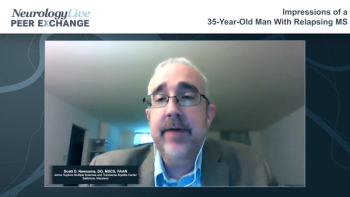
Impressions of exam results and the prognosis for a 35-year-old man who presents with progressive numbness and weakness in his left arm and leg.

An overview of high-efficacy therapies available to treat patients with relapsing-remitting multiple sclerosis.
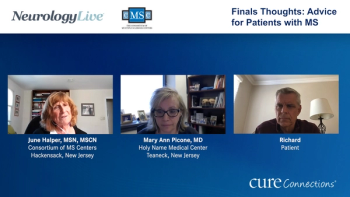
Final thoughts from participants on accepting help from others and listening to your body when you feel something is not right with multiple sclerosis.
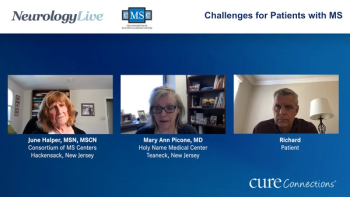
Mary Ann Picone, MD, suggests that 1 of the biggest challenges is patients without strong support networks.

Here's what is coming soon to NeurologyLive.

The Vice-Chair for Research at the Cleveland Clinic Neurological Institute discussed his team’s efforts to find the minimally effective dose of IMU-838.

Spencer Hutto, MD, a fellow of autoimmune neurology at Massachusetts General Hospital, discussed his team’s investigation into demyelinating events after the use of TNFαi inhibitors.










